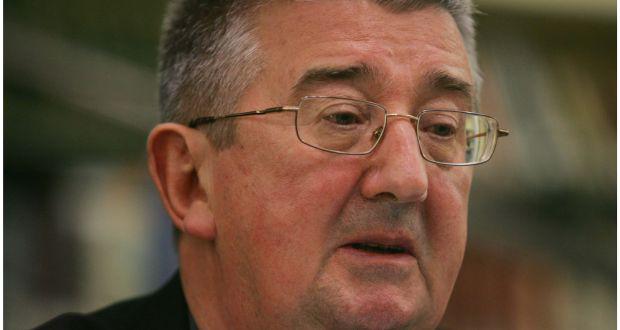|
Martin says Church stubbornly reluctant to cede control of schools
By Sarah Burns
Archbishop Diarmuid Martin has said there is “a stubborn reluctance within the Church” towards the divestment of Catholic schools. Dr Martin said the Irish religious education establishment “is fixated on questions of ownership and management and too little on the purpose of the Catholic school and the outcomes of Catholic education in terms of faith formation”. Dr Martin was speaking at the Diocese of Wurzburg in Germany on ‘The Challenge for the Church in the 21st Century’ over the weekend. A “reconfiguration plan” was announced earlier this year by Minister for Education Richard Bruton, aimed at encouraging the church to transfer the patronage of more than 200 schools to other models, including State-run schools. At present, more than 90 per cent of the State’s 3,200 primary schools are under Catholic patronage. Efforts to provide greater choice for parents have proven slow and divisive. Former minister for education Ruairi Quinn announced the start of the divestment programme five years ago. While the report of the Forum for Patronage and Pluralism recommended religious schools in about 28 areas divest to multidenominational patrons, only 10 have completed the divestment process todate. “It is stressed that Catholic schools are most welcoming of people of different faiths and of social background and of educational disability. That is indeed true,” Dr Martin said. “This is not however, a reason for maintaining patronage of most of the primary schools in the country, when more and more people want something else.” Dr Martin described the current relationship between Church and State in Ireland as “one of prudent distance” while also warned it will become “more and more difficult to maintain a true Catholic ethos in Catholic schools”. “More and more parents look on their local Catholic schools primarily as State schools somehow under Catholic patronage,” he added. “If enrolment policies become more diversified, equality and non-discrimination legislation will be used to challenge any exclusive denominational character in the ethos of a State school, except where necessary to protect the rights of minorities. “The risk now looms large that effectively it will become more and more difficult to maintain a true Catholic ethos in Catholic schools. The move towards parishes undertaking more effective faith formation of young people is miniscule. I fear that much of the debate about schools fails to address the real challenges about the religious education of our young people.” Dr Martin gave an outline of the country’s Church-State relationship including child sex abuse scandals. “The sexual abuse scandals have affected the faith of many and at the same time they were an indication of an underlying crisis of faith where the self-protective institution had become in many ways decoupled from the horror which ordinary people rightly felt,” he said. Dr Martin said while Ireland remains a “predominantly Catholic country” the percentage of those who identified as Catholic has fallen sharply from 84.2 per cent in the 2011 census to 78.3 per cent in 2016. “Regular religious practice in Ireland has dramatically decreased in recent years but by European standards, religious practice in Ireland is still high,” he said. “Secularisation is well advanced in Irish society and yet there are many residual elements of faith and religiosity present in daily life. Irish national radio and television both transmit the Angelus bells twice a day.” Dr Martin also referenced the 2015 same-sex marriage referendum adding “many in Ireland and overseas were surprised by the result of the referendum”. “What is worthy of note is that every single political party in Ireland supported the change of status. The vote was not about doctrine,” he said. “It was however not just about personal sympathy with gay and lesbian people and their families but about a conviction that gay and lesbian people should be permitted in civil law to have their stable loving relationships recognised in marriage.”
|
.
Any original material on these pages is copyright © BishopAccountability.org 2004. Reproduce freely with attribution.
